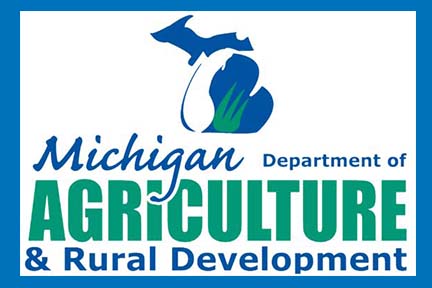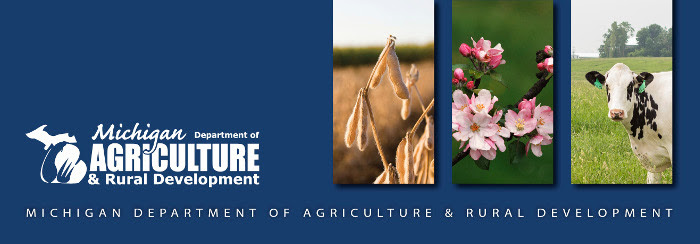
MDARD Advises Consumers: Harmful Ingredients Food
 |
| For immediate release: May 15, 2025
Media contact: Lynsey Mukomel, 517-290-1734
MDARD Advises Consumers and Michigan Food Industry of Potentially Harmful, Unapproved Ingredients in Some Food Products
LANSING, Mich. – The Michigan Department of Agriculture and Rural Development (MDARD) reminds consumers to check product labels for unapproved ingredients amid a rise in the availability of foods and dietary supplements containing potentially harmful psychotropic or psychoactive substances. “Psychoactive or psychotropic substances, when added to foods or dietary supplements and consumed, can affect mental processes like perception, consciousness, cognition or mood and emotions and are not legal to use as food ingredients,” said Tim Slawinski, MDARD Bureau of Food Safety and Animal Health director. “Many food products claiming to contain these and similar ingredients may be inaccurately labeled and could produce unexpected or potentially harmful side effects.” Unapproved ingredients include psychotropic and/or psychoactive mushrooms like psylocibin and A. muscaria, cannabis-based ingredients, non-noble forms of kava, kratom and other potentially harmful ingredients. Potential side effects of consuming these types of unapproved ingredients could include liver toxicity, seizures, elevated blood pressure and heart rates, reduction in motor skills and hallucinations. Foods containing these ingredients are considered adulterated according to the Michigan Food Law and the federal Food, Drug and Cosmetic Act (Sec 402(f)(1)(B)). Dietary supplements are defined as food under the Michigan Food Law. Many consumable products containing these unapproved ingredients have entered the market in recent years. However, these products are unlawful and cannot be legally sold or produced in Michigan or cross state lines. These ingredients have not satisfied the criteria necessary for being listed on the generally recognized as safety (GRAS) list for use. Consumable products containing any form of these unapproved ingredients are suspected of adulteration and therefore are not allowed in the manufacturing, holding, distribution or sale of food in Michigan. Outside of the marijuana regulations, any substance that will be added to food, drink or animal feed (including dietary supplements) must first be approved by the U.S. Food and Drug Administration (FDA) for that intended use. There is no legal path for manufacturing, selling or holding food products containing other psychoactive or psychotropic food additives in Michigan. If you have questions, please contact the MDARD Human Food Division at [email protected]. |




